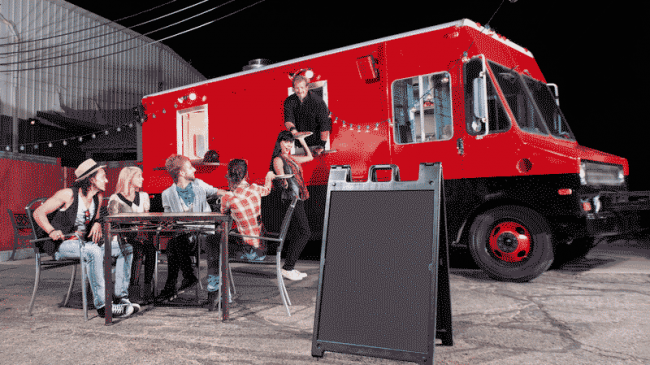Sarasota County wisely relaxed rules and opened up the market for food trucks in commercial areas of the county. It is time the city of Sarasota, and other municipalities like North Port, to follow suit.
Food truck dining has been a vibrant part of bringing new interest and vitality to downtowns from Portland, Ore., to Atlanta, bringing jobs, economic opportunity, greater commerce for downtown economies, boosts in tax revenue and happy on-the-go customers.
The “roach coaches” of yesteryear have been replaced with clean, professional food trucks that serve safe, sophisticated and often made-to-order meals that attract consumers and boost business at their locations. Moreover, food trucks often set up in underserved areas of cities and attract different customers from traditional restaurants.
Yet, incumbent brick-and-mortar restaurants often perceive food trucks as competition. But it is not the role of local governments to protect incumbent businesses from competition. Food trucks are specialty restaurants, and a flourishing and competitive restaurant scene is the best way for consumer tastes to encourage the good ones to grow and the bad ones to pack up and make way for the new.
A steady flow of new dining opportunities helps create excitement and interest for consumers. Just as the city does not limit the number of restaurants that can operate, so it should not limit the number of food trucks or their locations. Just as with any other business, patronage should dictate whether a business survives, not government regulators or incumbent businesses.
Certainly food trucks should be held to the same health standards as any other restaurant, and should be subject to costs that are appropriate to their business model, with a few special considerations based on their status as vehicles. Government should ensure that any restrictions are necessary, clear and enforceable, serving only public health and safety.
Because of their small size, many food trucks use (often cooperatively) commercial kitchens called “commissaries” for greater food storage and preparation, and clean areas to dispose of grease, used water and waste. Just like traditional restaurant kitchens, these commercial kitchens must be inspected according to state and county codes. For food trucks that prepare foods on-site, the same food-safety regulations should apply, as well as the presence of hand-washing stations, just as for brick-and-mortar restaurants.
Public safety is a unique concern for the food truck industry. Because of their often on-street locations, regulations regarding traffic safety must apply to food trucks.
Learning from U.S. cities that have already experimented with these regulations, Sarasota should consider prohibiting food trucks from parking within 20 feet of an intersection, and from operating in a way that creates enough congestion to block sidewalks, streets and parkways. This should not preclude parking in metered parking areas (as long as the food truck pays the metered rate) or on private property.
The proximity to brick-and-mortar restaurants has also been a touchpoint of controversy. In some cities, such as in Cincinnati, food truck associations and restaurant alliances seeking to defuse friction have often reached agreements for how many feet from a brick-and-mortar restaurant a food truck can park. But it is not the province of government to protect restaurants from new competition by regulating such proximities. After all, it is common to see one restaurant opening next door to another one, without government restriction. Main Street is block after block of restaurants cheek and jowl with one another. As long as sidewalks and streets remain open enough for pedestrian and vehicle traffic, food trucks should be able to park and vend from wherever it is legally possible for any other vehicle to park.
Booming cities such as Portland, Ore., and Austin have welcomed food trucks as an expansion of their local economies. Portland and Austin have promoted using private vacant lots as “food truck hubs.” This allows for shared use of electricity, restrooms, hand-washing stations, refuse disposal, etc. similar to what malls provide for brick-and-mortar businesses.
Boston’s Mobile Food Truck Committee, composed of representatives from all government departments concerned with food truck permitting, from Department of Transportation to the fire department, makes for a one-stop permit and license shop that gets new entrepreneurs up and running quickly and with a minimum of bureaucracy.
A bigger, more diverse economy is the tide that lifts all boats for a city’s businesses and residents. Sarasota should encourage food trucks, using policies that support fair competition and seek to serve the economy on the whole and the public in particular.
Adrian Moore is vice president of the Reason Foundation and lives in Sarasota. This column first appeared in the Florida Business Observer.

